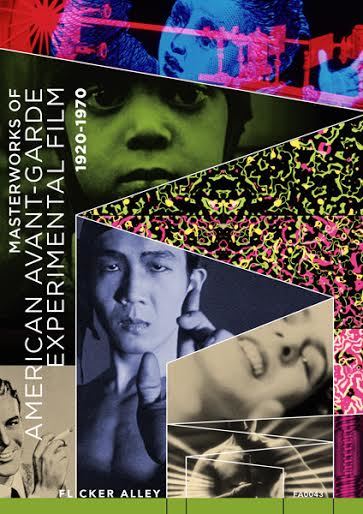The DVD/VOD label Flicker Alley is an all-time favorite with lovers of vintage cinema and quality DVD and Blu-ray releases—with good reason. Since the company’s inception in 2002, the brainchild of a single film lover, Jeff Masino, the company has put exceptional care and passion into each of its releases, and has managed to stay a vital business while catering to some extremely esoteric tastes and interests. Their renderings of classic Cinerama movies in the high-def format, for instance, are staggering on both the levels of scholarship and adaptation for home viewing. Many of its releases are genuinely curated tours through various genres and/or periods. And the majority of what they do—a multi-disc retrospective of the work of early cinema derring-do maestro Douglas Fairbanks, for instance, or their outstanding restorations of still-hilarious Charlie Chaplin shorts—is just incredible fun.
A brand-new set from the company, produced by scholar and preservationist David Shepard in association with Blackhawk films, is yet another home run. “Masterworks of American Avant-Garde Experimental Film 1920-1970” is a dual format package—two Blu-ray discs and two standard-def DVDs, each containing the same content—that offers almost seven hours worth of short films. It’s a near-dizzying supply of visual and sometimes aural bedazzlement while also providing an education on what the term “experimental film” meant over the decades, and how the avant-garde influenced the mainstream, that is, conventional narrative film. Slavo Vorkapich and Robert Florey, co-directors of the Caligari-In-Tinseltown “The Life And Death of 9413—A Hollywood Extra” (1927) had productive careers in the studios, the former as a montage director, the latter as a feature director whose work would include the eerie horror picture “The Beast With Five Fingers.” Ian Hugo’s 1952 “Bells Of Atlantis” features an electronic score by Louis and Bebe Barron, who’d go on to score the seminal ‘50s sci-fi hit “Forbidden Planet.” Francis Thompson, who directed the beautifully abstracted urban street scenes of 1958’s “N.Y., N.Y.,” became an early IMAX filmmaker. And so on.
But beyond the historical connections and firsts, the set is a really engaging survey of the different modes and moods of experimental filmmaking, from the almost quaint earnestness of “Poem 8,” by painter Emlen Etting (1933) to the sardonic juxtapositions of American phenomena (nudist contest and auto show) in Tom Pallazzolo’s “Love It, Leave It” (1973). And then there are all the myriad manifestations of visual beauty, as in Oskar Fischinger’s “An Optical Poem,” (1937) produced by MGM and almost certainly an inspiration for the “Toccata and Fugue” sequence in Disney’s “Fantasia“; other abstract animations include 1940’s “Tarantella” and 1970’s “Disintegration Lines 2.” The set also includes more figurative animated works like Lawrence Jordan’s jaw-dropping “Our Lady Of The Sphere,” (1972) which is so staggering in its high-def Blu-ray version that it ought to be used to demo the format.
Many of the big names of so-called “underground” film are represented here: Kenneth Anger, Jonas Mekas, Stan Brakhage. The Bruce Baille selection, “Castro Street” is particularly striking and beautiful. And of course that staple of undergrad avant-garde film courses, Maya Deren’s “Meshes of the Afternoon” is here. A substantial amount of the material here has been on disc before, but the Blu-ray boost really does make a difference, and the fact is there are gems here I’ve never seen before: Owen Land’s innovatively structured and still eerily spooky “Film That Rises to the Surface of Clarified Butter,” Amy Greenfield’s enigmatic “Transport,” Francis Lee’s striking Pearl Harbor abstraction “1941.” The liner notes are informative and concise, making the set both a resource and a real pleasure. This collection is an irresistible way for a curious movie lover to expand his or her horizons.












